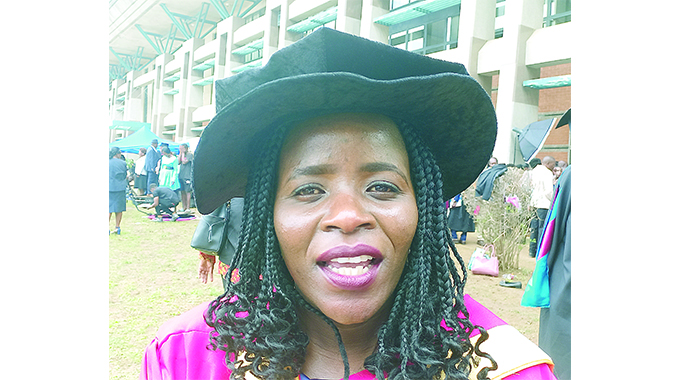Bulawayo academic debunks myths around owls

Bongani Ndlovu, Chronicle Reporter
WHILE an owl is considered a symbol of wisdom in Western countries, in many African countries, the nocturnal bird is associated with misfortune and witchcraft and is also loathed as a harbinger of death.
However, to demystify misconceptions associated with owls, a Bulawayo-based academic Dr Lovelater Sebele, who recently graduated with a PhD in Sustainability and Conservation from the National University of Science and Technology (Nust), believes the nocturnal bird is a most effective natural way of controlling rodents.

Nust
Dr Sebele was among the seven PhD graduates who were capped by President Mnangagwa, during the 28th Nust graduation ceremony recently.
The title of her thesis was “Natural rodent control by barn owls.” At least 12 species of owls are found in Zimbabwe, and one of them is the barn owl.
The barn owl is the most widely distributed species of owl in the world and one of the most widespread of all species of birds, being found almost everywhere except for the polar and desert regions.
The most common owls in the southern African region are barn owls and grass owls, besides a few white-faced owls, spotted eagle owls, and African wood owls.
Whenever an owl hoots, in the African culture, it is perceived as a bad omen. However, in her research, Dr Sebele wants to break that superstition and show how these birds are very important to humans, as they prey on pests and rodents.
She said the owl helps humans in terms of controlling rodents such as mice and rats. Most of the time, rodents are controlled through pesticides.
Dr Sebele said she has always had a passion for birds of prey. She said owls can improve food production.
“I love birds of prey and the idea of biomimicry and bioutilisation using wildlife to improve human livelihoods. I have grown up hearing a lot of bad things about owls yet they have been used to improve food production in other parts of the world,” she said.
“I decided to assess their effectiveness in a Zimbabwe rural landscape and to assess the factors that were possibly impeding their use.”
Explaining her thesis, Dr Sebele, said owls are effective in rodent control.
“Barn owls feed 99 percent on rodents and it means that they can get rid of a lot of the rodents. For a family of seven owls, everyone needs to get at least one rodent every day,” said Dr Sebele.
“Owls are being used in other parts of the world as a natural method to control rodents. In fact, for a farmer, it means that it’s a cheap method of getting rid of rodents as they won’t be adding chemicals to the environment, which subsequently leads to secondary poisoning of other species.”
Dr Sebele said her study focused on the general knowledge of rodents in communities and the challenges that they’re facing.
“In my research, I also focused on the community’s perceptions of rodents and how they feel about the owls including their fears. The problem with us as Africans and owls is that there are a lot of myths and beliefs that owls are linked to witchcraft, which is not the case,” she said.
“I also looked at the species of rodents that the owls are taking out of local communities to see if they can be used as an effective way of controlling rodents, even within our African settings.”
Dr Sebele said she took her research to Ward 15 in Hwange District where she set up owl nests and her findings were that the birds were quite effective.
“I discovered that 70 percent of the rodents that are being taken out in communities are the ones that are problematic. So, I would like to say to the Zimbabwean communities, they should consider that as an option of a natural method to control rodents that has been proven to work,” said Dr Sebele.
She said after her findings, most of the community members in Hwange were willing to use the owls to control rodents.
“More men were actually willing to use owls to control rodents than women who feared being labelled witches. In my study, I also established that more educated people were also willing to use owls,” said Dr Sebele.
“People living closer to the Hwange National Park, a protected area, were more open to using owls than people staying in the periphery. Climate conditions are influencing the distribution of owls in the country.”
Dr Sebele said her drive is to conserve nature and to make local communities aware of the benefits of the presence of owls in human settlements.
“Through my research, I want to make a difference in my community by ensuring that all species are conserved. I’m quite hopeful that there will be funding opportunities to extend this work to other parts of the country so that owls are considered as a viable option for rodent control,” she said.
Born in Bulawayo, Dr Sebele attended school at Mgiqika Primary in Nketa and Marist Secondary School in Dete, Hwange District.

University of Cape Town
She did her first degree in Forest Resources and Wildlife Management at Nust before she went to South Africa where she did a Masters in Conservation Biology at the University of Cape Town.
She recently graduated with a PhD in Sustainability and Conservation at Nust.










Comments